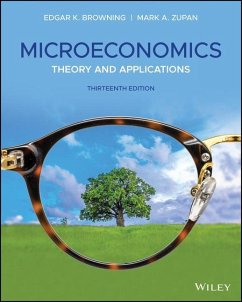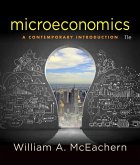"According to certain labor unions, traditional retailers, and community groups, Walmart imposes significant costs on society. Among the asserted costs are the destruction of jobs in competing stores, driving of employees toward public welfare systems by paying lower wages and providing limited health care coverage, and the fostering of urban sprawl. Arrayed against these claimed costs are the benefits generated by Walmart through the employment of a large number of workers (Walmart now is the largest private-sector employer in the United States) and the promotion of lower retail prices for consumers. How can one assess the validity of the claims made by Walmart's critics? Moreover, is the combined magnitude of costs associated with Walmart sizable enough to outweigh the benefits generated by the retailing giant? A thorough knowledge of microeconomics can help answer topical questions such as these and, more broadly, gives students an understanding of how markets operate and allows them to see the world through the eyes of an economist. Our intention with this edition of the text is to give students the fundamental tools of analysis and to show how the tools can be used to explain and predict market phenomena. To this end, we present basic microeconomic principles in a clear, thorough way, using numerous applications to illustrate the use of theory and to reinforce students' understanding of it. We believe that microeconomics is the most important course in the undergraduate economics curriculum. We also believe that understanding microeconomics provides an essential foundation to any bachelor's or master's degree business student. As a result, our text is written so that both economics and business students will learn microeconomic theory and how to use it correctly"--








